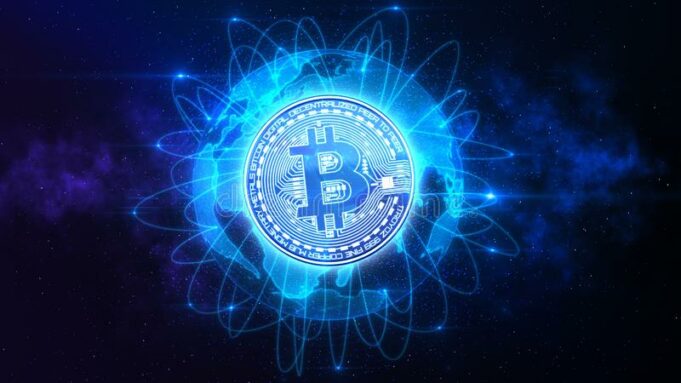Bitcoin mining has become a popular topic in recent years, as cryptocurrency gains more mainstream attention. Mining is an essential component of the Bitcoin network and is responsible for validating and processing transactions. But what exactly is Bitcoin mining, and what is it solving?
To understand Bitcoin mining, we must first understand how the Bitcoin network operates. Bitcoin is a decentralized digital currency that operates without a central authority. Instead, transactions are validated and processed by a network of users known as nodes. These nodes work together to maintain the integrity of the blockchain, a decentralized ledger that records all Bitcoin transactions.
Mining is the process of adding new transactions to the blockchain. Miners use powerful computers to solve complex mathematical equations and validate transactions. When a miner solves a mathematical equation, they are rewarded with newly minted bitcoins. This reward system incentivizes miners to validate transactions and maintain the integrity of the blockchain.
The mathematical equations that miners are solving are called proof-of-work algorithms. These algorithms require miners to expend computational power to solve them. The difficulty of the algorithm is adjusted automatically by the network to maintain a steady flow of new bitcoins into circulation.
So, what is Bitcoin mining solving? In short, it is solving the problem of trust in a decentralized network. Because there is no central authority in the Bitcoin network, there needs to be a way to ensure that transactions are valid and that no one is trying to cheat the system.
Mining serves as a way to validate transactions and maintain the integrity of the blockchain. When a miner validates a transaction, it is added to the blockchain and becomes a permanent part of the ledger. This means that once a transaction is recorded on the blockchain, it cannot be altered or deleted.
The importance of mining in the Bitcoin network cannot be overstated. Without miners, the integrity of the blockchain would be compromised, and the network would be vulnerable to attacks. Because the blockchain is decentralized, it is crucial that there is a way to ensure that all nodes are on the same page and that no one is trying to manipulate the system.
But mining is not without its challenges. As the network grows, the difficulty of the proof-of-work algorithm increases, requiring more computational power to solve. This means that miners must invest in expensive hardware to keep up with the competition.
Additionally, the mining process consumes a significant amount of energy. The Bitcoin network currently consumes more energy than the entire country of Argentina. This has led to concerns about the environmental impact of Bitcoin mining and calls for more energy-efficient mining methods.
Despite these challenges, Bitcoin mining remains an essential component of the network. It serves as a way to validate transactions and maintain the integrity of the blockchain. As the Bitcoin network continues to grow and evolve, it will be interesting to see how mining adapts to meet the needs of the network and its users.
In conclusion, Bitcoin mining is solving the problem of trust in a decentralized network. It serves as a way to validate transactions and maintain the integrity of the blockchain. While it is not without its challenges, mining remains an essential component of the Bitcoin network. As cryptocurrency continues to gain mainstream attention, it will be interesting to see how mining evolves to meet the needs of the network and its users.

























